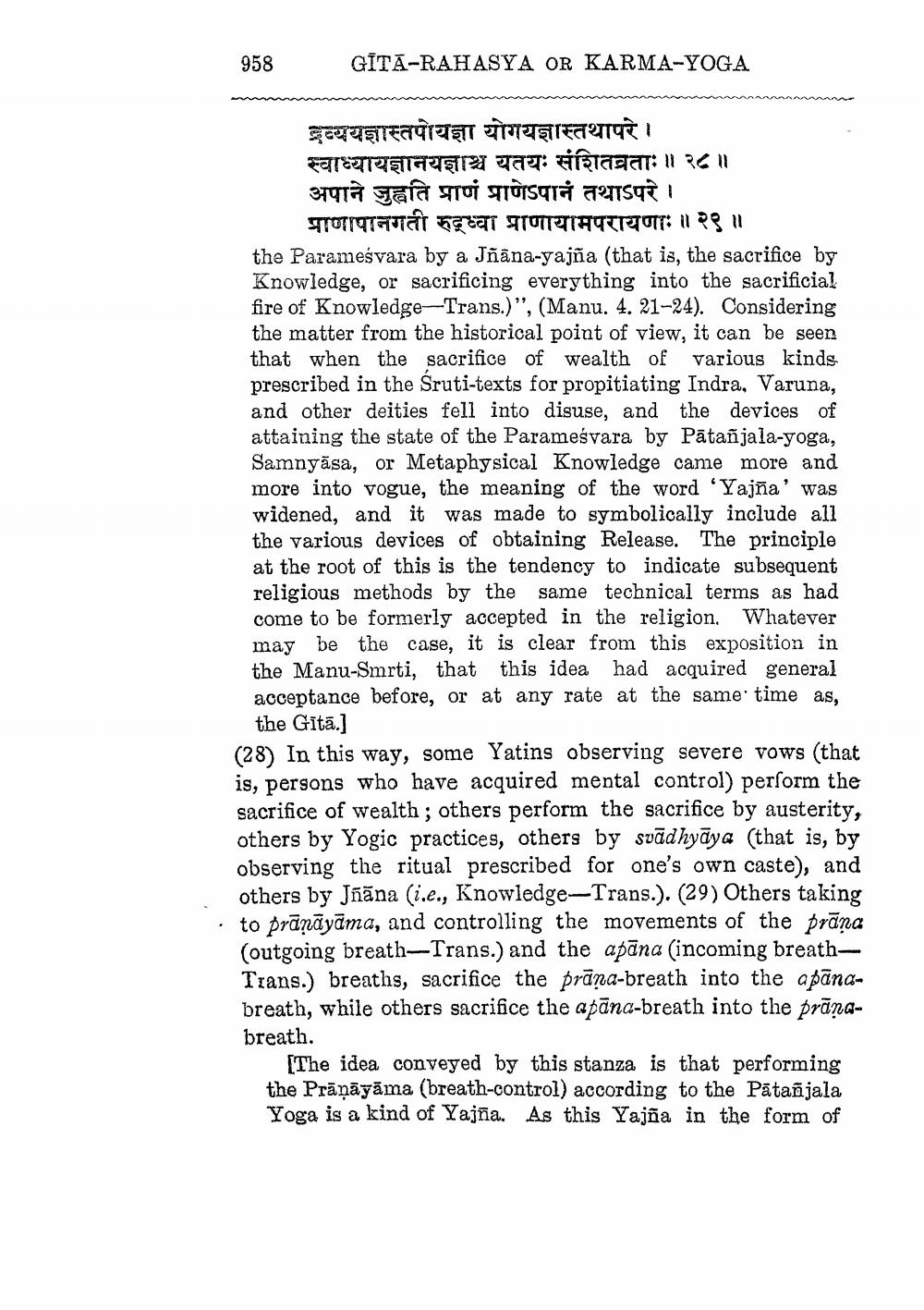________________
958
GĪTĀ-RAHASYA OR KARMA-YOGA
अव्ययज्ञास्तपोयज्ञा योगयज्ञास्तथापरे । स्वाध्यायज्ञानयज्ञाश्च यतयः संशितव्रताः॥ २८॥ अपाने जुह्वति प्राणं प्राणेऽपानं तथाऽपरे।
प्राणापानगती रुद्ध्वा प्राणायामपरायणाः ॥२९॥ the Parameśvara by a Jñana-yajña (that is, the sacrifice by Knowledge, or sacrificing everything into the sacrificial fire of Knowledge-Trans.)", (Manu. 4. 21-24). Considering the matter from the historical point of view, it can be seen that when the sacrifice of wealth of various kinds prescribed in the Sruti-texts for propitiating Indra, Varuna, and other deities fell into disuse, and the devices of attaining the state of the Parameśvara by Patañjala-yoga, Samnyāsa, or Metaphysical Knowledge came more and more into vogue, the meaning of the word 'Yajña' was widened, and it was made to symbolically include all the various devices of obtaining Release. The principle at the root of this is the tendency to indicate subsequent religious methods by the same technical terms as had come to be formerly accepted in the religion. Whatever may be the case, it is clear from this exposition in the Manu-Smrti, that this idea had acquired general acceptance before, or at any rate at the same time as,
the Gītā.] (28) In this way, some Yatins observing severe vows (that is, persons who have acquired mental control) perform the sacrifice of wealth ; others perform the sacrifice by austerity, others by Yogic practices, others by svādhyāya (that is, by observing the ritual prescribed for one's own caste), and others by Jñāna (i.e., Knowledge-Trans.). (29) Others taking to prānāyāma, and controlling the movements of the prāņa (outgoing breath-Trans.) and the apāna (incoming breathTrans.) breaths, sacrifice the prana-breath into the apanobreath, while others sacrifice the apāna-breath into the prāņabreath.
[The idea conveyed by this stanza is that performing the Prāņāyāma (breath-control) according to the Pātañjala Yoga is a kind of Yajña. As this Yajña in the form of




